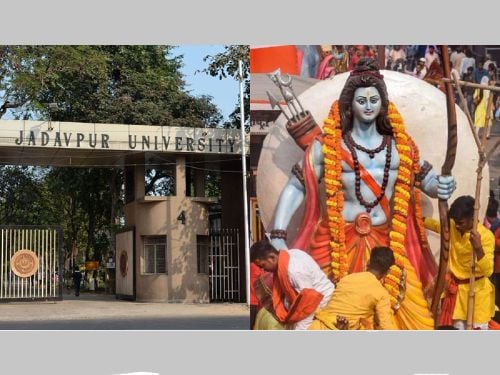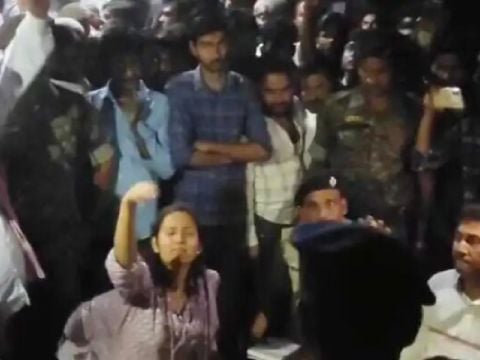The capital of China’s restive western region of Xinjiang has introduced a law banning veiled robes in public amid measures taken by Beijing to curb Muslim ‘extremists’. The law in the predominantly Muslim region comes as Beijing intensifies a campaign against ‘religious extremism’ that it blames for the violence that has left hundreds dead in the past 20 months. “This fits into the larger pattern, keeping up with the trend in the past five years that has really intensified in the last year by the government to try to forcibly reshape and standardize the type of garment among the Uighur females,” said James Leibold, a scholar of ethnic policies at Australia’s La Trobe University. “It polarizes the tensions even further, and you get violent push-back,” Leibold said, noting that acts of unveiling Uighur women have been met with resistance in Xinjiang.
In August, the northern Xinjiang city of Karamay announced that young men with beards and women in burqas or hijabs would not be allowed on public buses. In another public campaign called “Project Beauty,” authorities have banned veils and masks that cover up a woman’s face. Uighur women also are requested to tie headscarves behind their ears, instead of wrapping them around their chins, a custom authorities say is not indigenous to Uighur cultures. Police also have raided women’s dress shops in Xinjiang and confiscated full-length robes. The government is suspicious of Islam, and has tried to discourage traditional Muslim practice in the Xinjiang autonomous region. The government also banned prayer meetings and other religious practices in government buildings, schools and business offices. Religious activities will now be restricted only to take place in registered venues like mosques. The bans were put into effect as of Jan. 1.
Chinese government is known with its oppression on Muslims. On Sep. an outspoken scholar who championed China’s Uighur minority was convicted of separatism by a Chinese court and sentenced to life in prison, according to the scholar’s lawyers. Rights groups have condemned the targeting of Tohti, a respected economist and moderate who had long denounced the repression of Uighurs.
Violence linked to Xinjiang has intensified over the past year, with at least 200 people killed in a series of clashes and increasingly sophisticated attacks in the resource-rich region and beyond it. Beijing, which blames Xinjiang-related violence on “religious extremists”, “separatists” and “terrorists”, has responded to the current series of incidents by launching a severe crackdown in recent months, with hundreds of arrests and around 50 death sentences handed down.
Xinjiang is home to the Turkic-speaking Uighur minority Muslims, who have complained of China’s repressive rule and economic disenfranchisement under a government dominated by the majority Han Chinese. Muslims make up about 1.8 percent of the Chinese population. In Xinjiang, non-Muslim ethnic Han Chinese account for 41 percent of the region’s population.
Source : Daily Bash

 Jadavpur Univ revokes permission to celebrate Ram Navami on campus after granting it
Jadavpur Univ revokes permission to celebrate Ram Navami on campus after granting it Andhra Pradesh: Farooq kills mentally challenged Hindu man for insurance money
Andhra Pradesh: Farooq kills mentally challenged Hindu man for insurance money Pakistan: Ancient Hindu temple in Khyber Pakhtunkhwa demolished for commercial complex
Pakistan: Ancient Hindu temple in Khyber Pakhtunkhwa demolished for commercial complex Bihar: Goddess Bhagavati Temple in Araria vandalised and deities damaged
Bihar: Goddess Bhagavati Temple in Araria vandalised and deities damaged Vadodara: Beef supplier Imran Qureshi arrested in beef-stuffed samosa case
Vadodara: Beef supplier Imran Qureshi arrested in beef-stuffed samosa case After Idukki diocese, Syro Malabar Catholic Church’s Thamarassery diocese screens ‘The Kerala Story’
After Idukki diocese, Syro Malabar Catholic Church’s Thamarassery diocese screens ‘The Kerala Story’